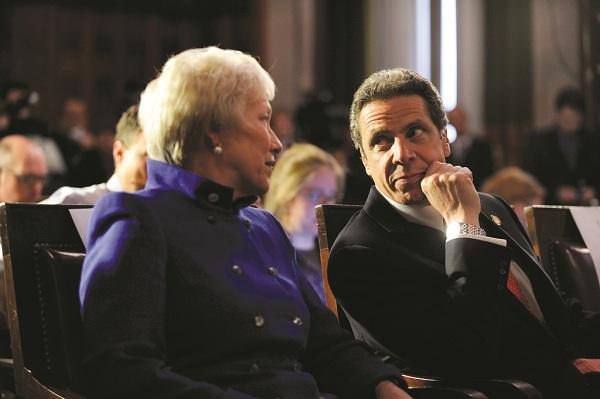
The New York State Legislature passed legislation Friday, June 24 authorizing the SUNY Board of Trustees to raise tuition for SUNY and CUNY campuses every year for the next five years, a measure that the SUNY trustees officially adopted Thursday.
SUNY schools will raise tuition $300 per year for in-state students through the 2015-2016 academic year, $940 per year for out-of-state students at SUNY colleges and $1,340 per year for out-of-state students at the SUNY University Centers located in Binghamton, Stony Brook, Buffalo and Albany.
These tuition hikes, passed as part of a bill called “NYSUNY 2020,” implement a plan that many in the SUNY administration and on SUNY campuses have pushed for in recent years known as “rational tuition policy.”
Advocates of the rational tuition policy have argued that small, incremental tuition increases should be adopted as a preferable method to help fund a financially distressed SUNY system, as opposed to the existing rubric by which the legislature kept tuition frozen at low levels for periods of years, then would raise it in unpredictable spikes during tough economic times.
BU President C. Peter Magrath said that this steady increase will help families to better plan for the future.
SUNY administrators have expressed optimism that these tuition increases will help compensate for slashes in state funding for SUNY that, according to the Chronicle of Higher Education, have totaled about $1.4 billion in the last four years, including $289 million of cuts passed by the legislature in March this year.
“State funding is totally inadequate, it’s only about 20 percent, one-fifth, of our budget and that’s a number that’s been going down over the years with huge budget cuts,” Magrath said.
A key feature of the NYSUNY 2020 legislation is that it guarantees that SUNY students’ tuition dollars will be kept for use by their schools. In the past, tuition paid to SUNY by law went to the state, and could be used by lawmakers for other state agencies and projects outside of SUNY.
Magrath stressed the importance of the funds in terms of maintaining BU’s standing and reputation.
“We are one of the most selective, high-quality universities and that’s because we have a great staff,” Magrath said. “If we don’t have resources our faculty-student ratios will deteriorate and we will not be able to provide the critical education of selective graduate and undergraduate students.”
Some have expressed criticism of the tuition increases, arguing that in the present national economic downturn they will make college unaffordable for many of New York’s low-income families.
“The tuition increases will price more students out of quality higher education,” said Brendan McQuade, a graduate student in the sociology department. “As a society, we should be aspiring to make higher education a free and universal right and means to improve our general welfare. Instead, the direction seems to be toward privatization.”
McQuade is part of the Graduate Student Employees Union and a non-official student group on campus called Concerned Binghamton Students, both of which are allied with New York Students Rising, a coalition of groups across the state forming to resist budget cuts and fight the privatization of education.
McQuade said SUNY could raise revenue through means other than raising tuition, such as cutting salaries for senior management.
“As an interim president, he makes $355,000, $70,000 more than his predecessor,” McQuade said. “President Magrath can start to show his commitment to public education by giving up his salary increase and cutting the salaries of senior administrators at Binghamton University.”
Donna Lupardo, the Democratic Assemblywoman for the 126th district, said a “major concern” for her was students from lower-income families being priced out of higher education, but she also said that the NYSUNY 2020 legislation “successfully protect[s] students who receive TAP [Tuition Assitance Program] through tuition credits.”
Under the legislation’s provisions, students eligible for the maximum TAP award will not be affected by the tuition increases.
Jean-Pierre Mileur, interim provost and vice president of academic affairs, said that the tuition increases will also support student aid.
“The campus is committed to allocating 25 percent of the proceeds of the tuition increase to student aid and the state is funding a new loan program to help students cope with the increased cost,” he said.
NYSUNY 2020 also features a “Challenge Grant Program,” which will make up to $35 million available in capital funding to each of the four SUNY centers. In order to receive Challenge Grant money, each school must submit detailed plans for its long-term economic and academic growth.
University spokeswoman Gail Glover said that BU has already submitted its plan, but has not made a formal presentation of the plan to Gov. Cuomo yet.
Magrath said he was confident BU would receive the full $35 million for which it is eligible. He also said he expects the result of Binghamton’s application to become known by the end of July.
The legislation did not address what will occur after the five years of regular tuition increases.
Magrath said he hopes the rational tuition plan will be renewed and continued.


